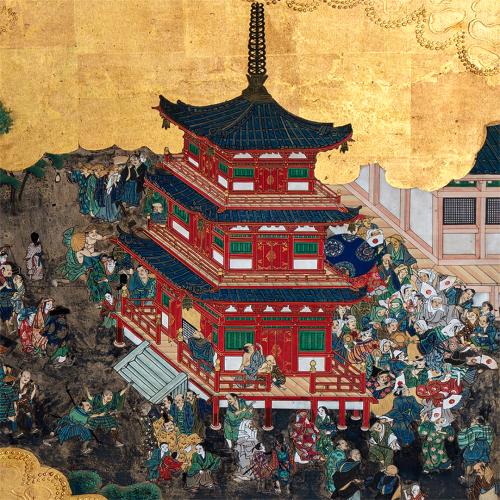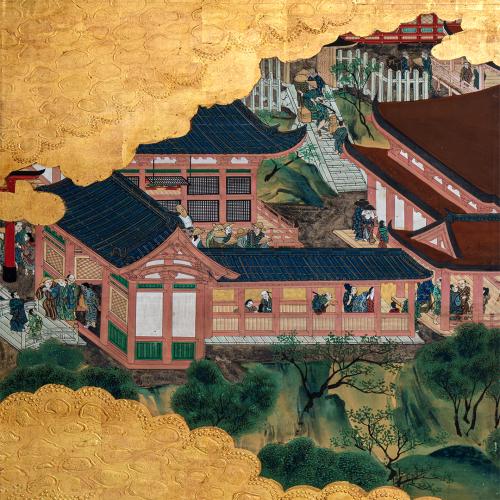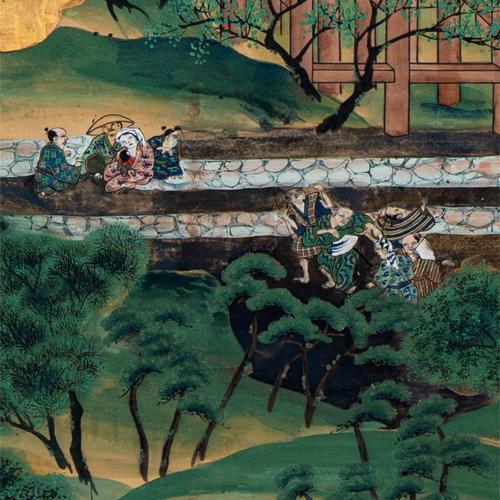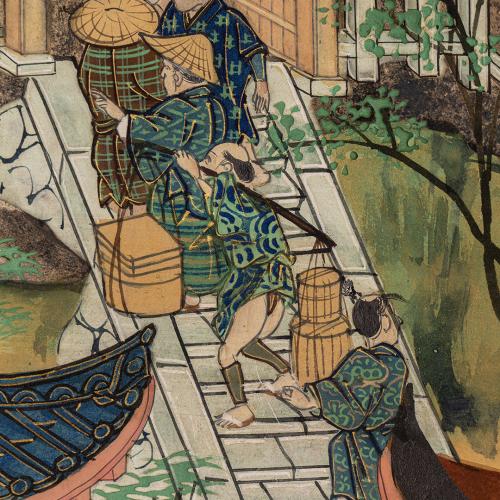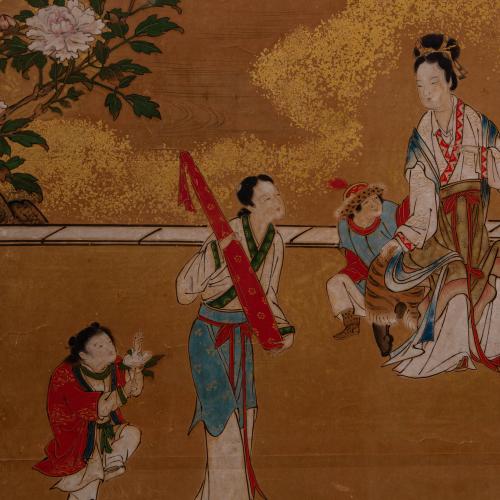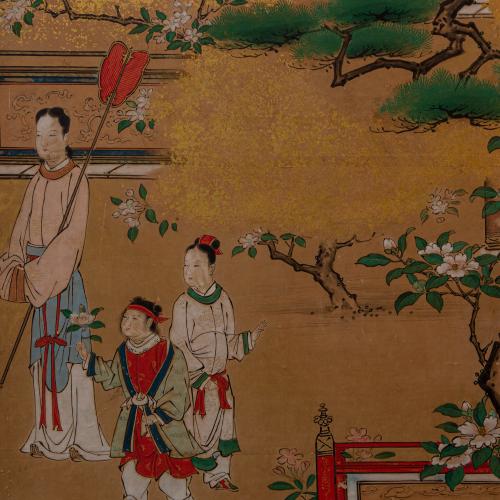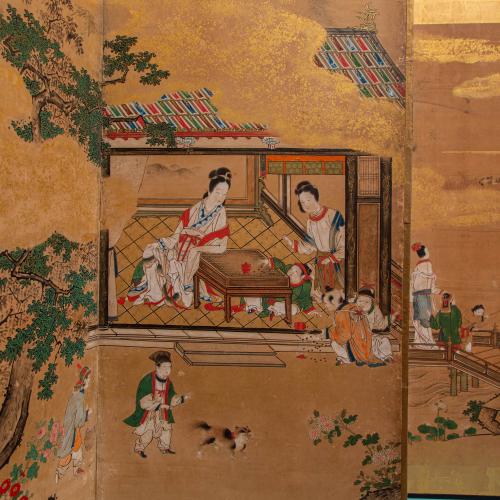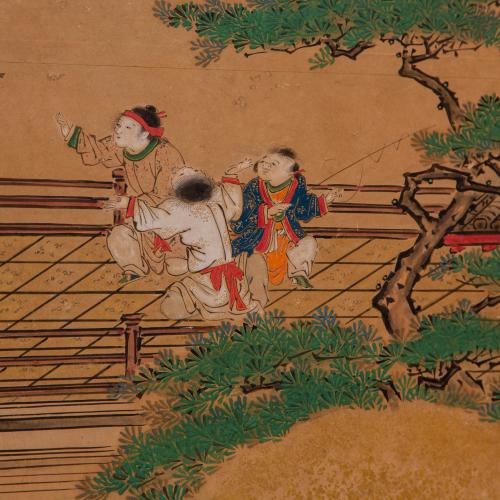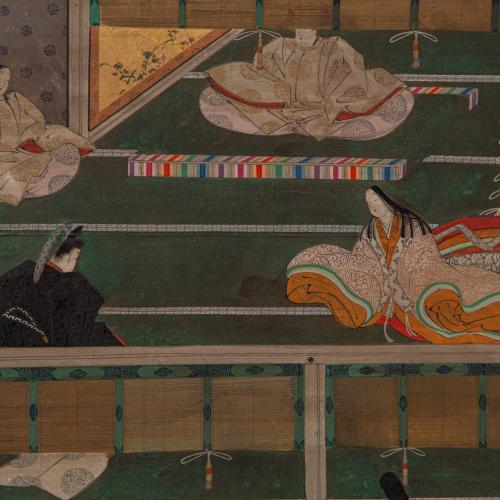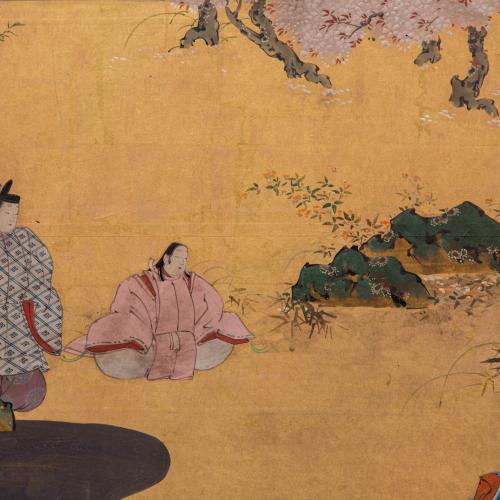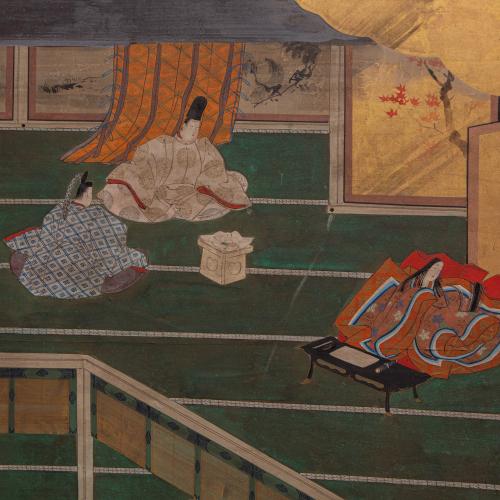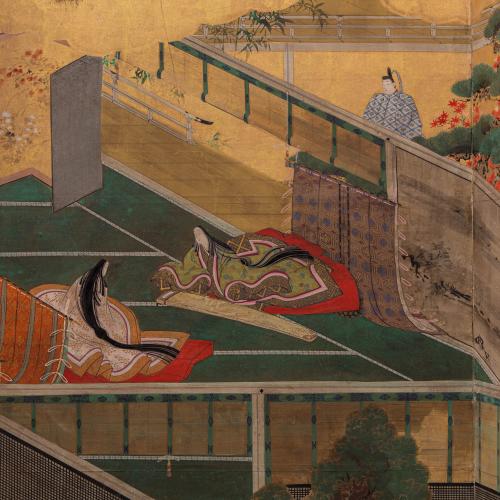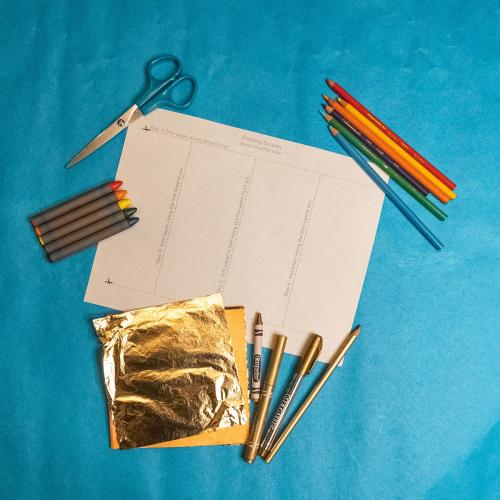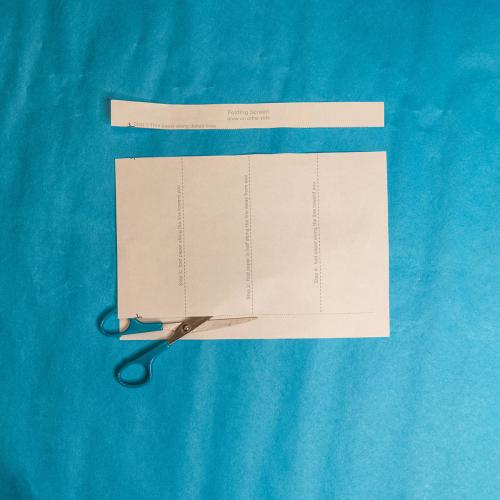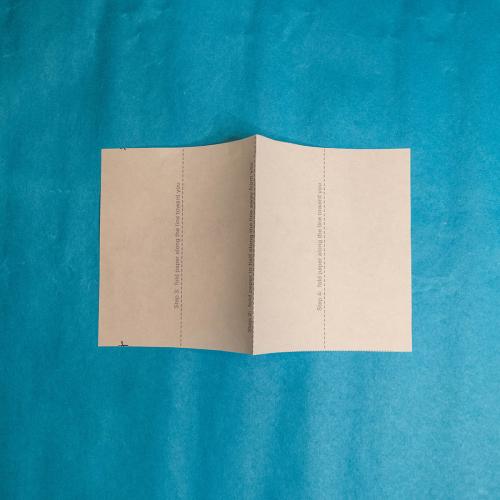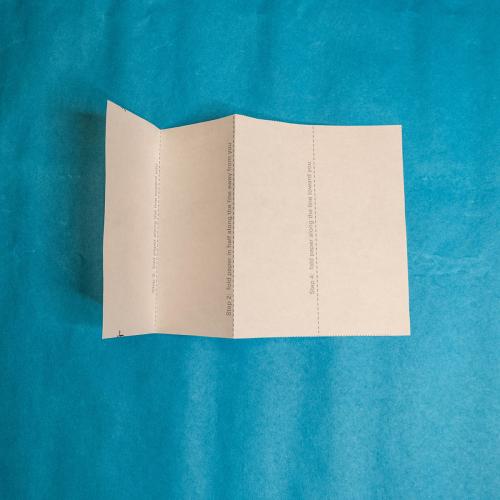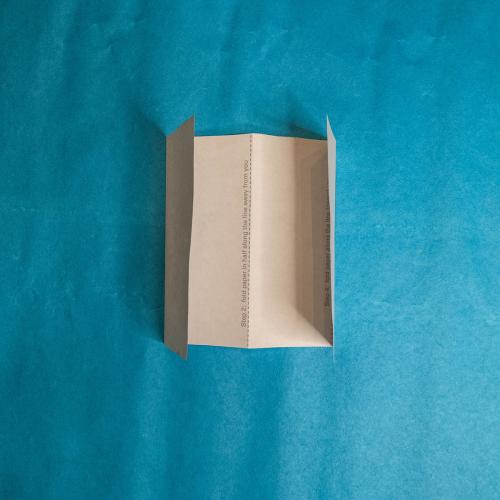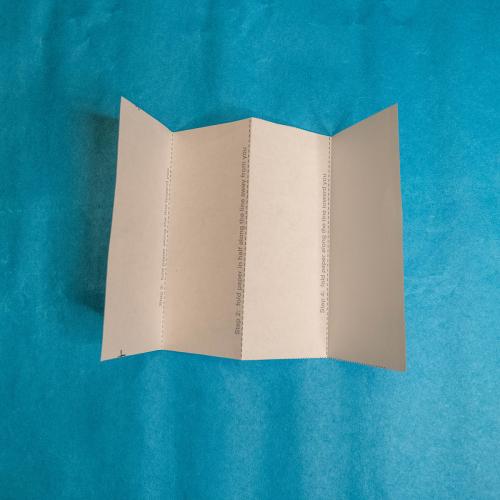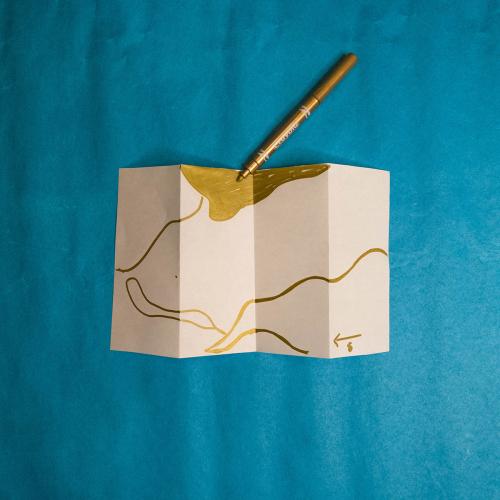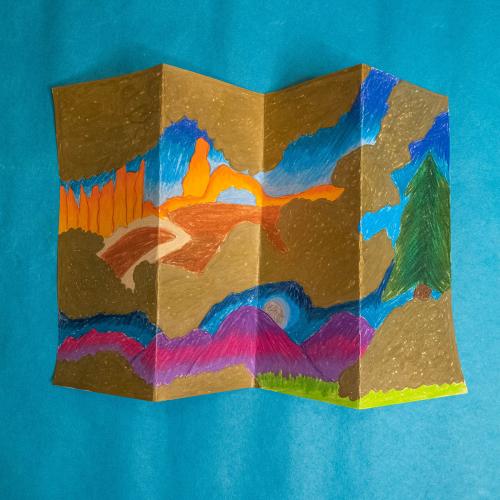Third Saturday: Mini Japanese Screens | March 2020
Welcome to the first-ever online Third Saturday for Families. The UMFA may be closed temporarily, but that’s not stopping us from sharing our popular family art-making with you. We hope you enjoy taking the time to create your own mini screen, inspired by Beyond the Divide: Merchant, Artist, Samurai in Edo Japan, an exhibition curated from the UMFA's own wonderful collection of Japanese art. Feel free to share your creations with us on Instagram with #umfaThirdSaturday.
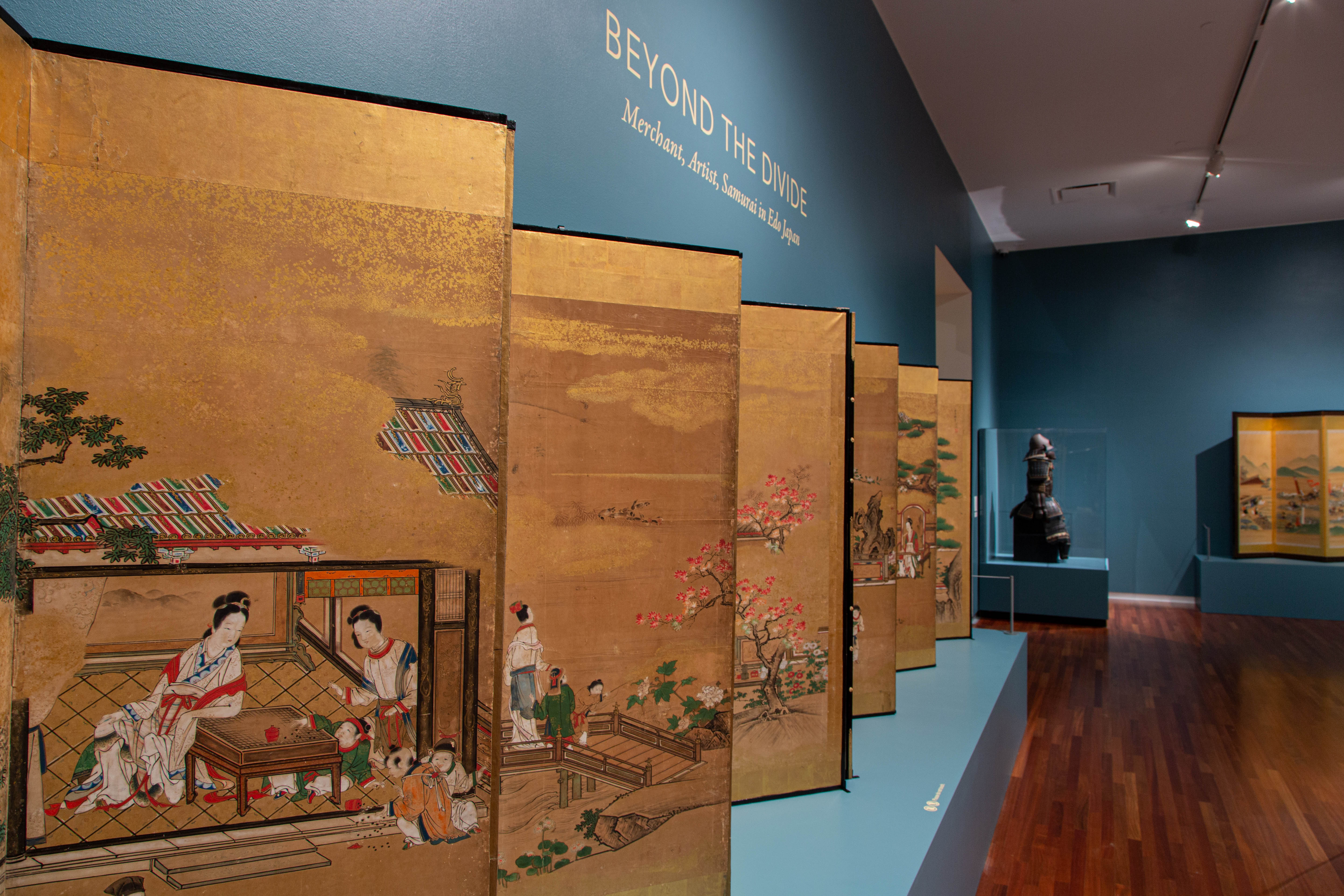
Before you get started on the art project, please take a few moments to find inspiration in the images of some folded screens from Beyond the Divide.
Japanese folding screens like this one depicting The Kiyomizu Temple are called byōbu meaning “wind wall.” The screens were originally used to protect rooms from drafts but were also used to divide rooms. You will be making your own mini byōbu today. What will you use it for?
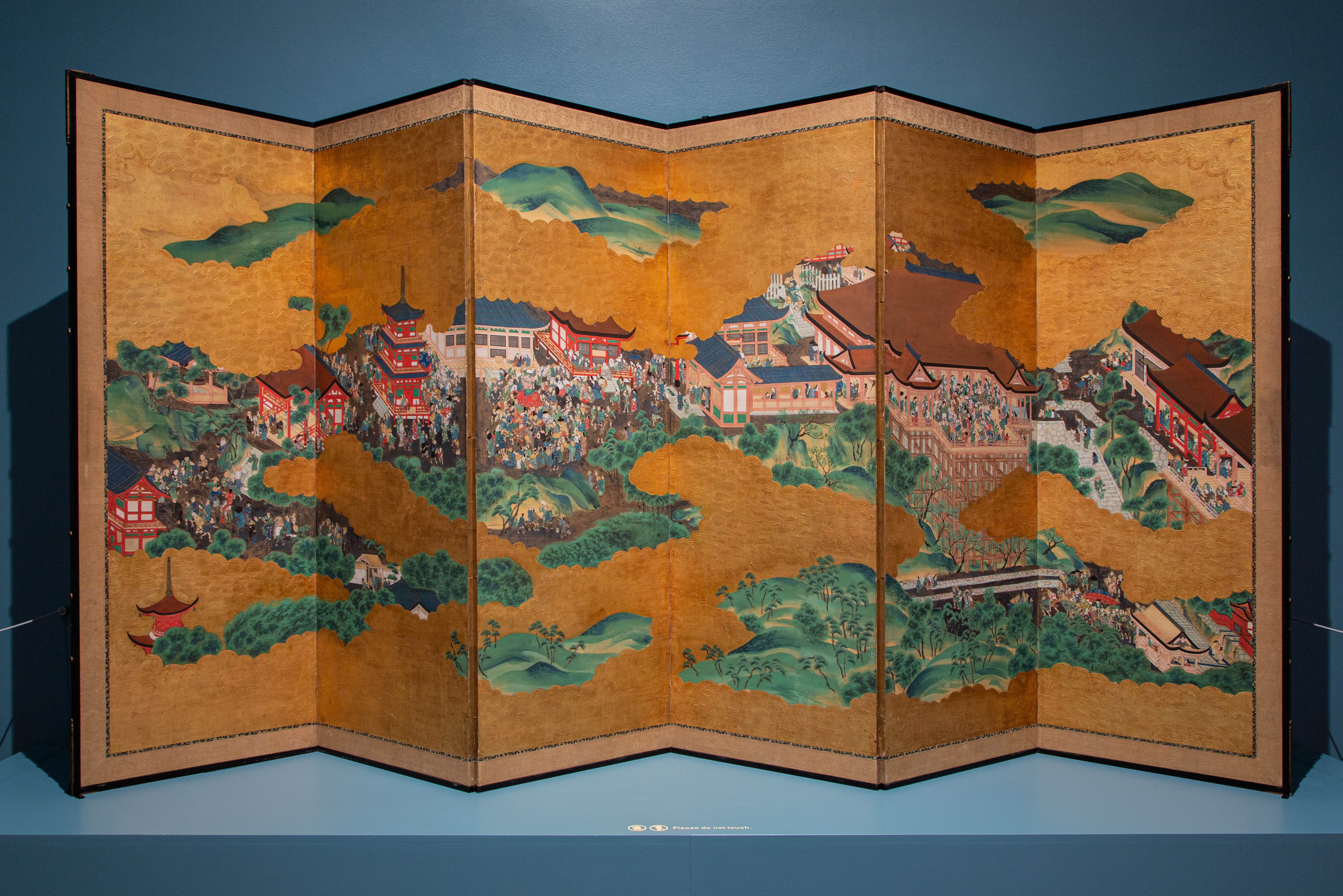
Purchased with funds from the Marriner S. Eccles Foundation for the Marriner S. Eccles Collection of Masterworks, UMFA1980.045A
Now explore Four Arts of China by Kano Tsunenobu. Traditionally byōbu are decorated with stories of daily life, popular books, or nature. What story do you think is being told in this screen? What story will you draw on your own screen?

Purchased with funds from the John Preston Creer and Mary Elizabeth Brockbank Creer Memorial Fund, UMFA1997.22.1 and 2
Here's The Tale of Genji Japanese Screen from the Kano School. This screen tells a very famous story about a man named Genji written in the 11th century by the noblewoman Murasaki Shikibu.
As you look at this screen, notice the gold clouds. Gold-leafed clouds not only displayed the wealth and power of the owner, they divided up different scenes of the story, just like a comic strip panel. You can use gold pens to draw clouds between scenes on your screen. And remember, unlike how we’re used to reading in English, the stories on these screens are read from right to left. Begin thinking about how you will divide up the story you want to tell.

Purchased with funds from the Marriner S. Eccles Foundation for the Marriner S. Eccles Collection of Masterworks, assisted by Professor and
Mrs. Lennox Tierney, UMFA1991.068.001, A, B.
Now it’s time to make your own mini screen inspired by the art you have seen. Print out the template on letter-sized paper. If you can’t print out the template, don’t worry, you can still use a piece of plain paper and follow along with the step-by-step images below.
Step 1: Gather your supplies. To make your mini screen you will need scissors, the printed template, your favorite coloring supplies, and something to draw your golden clouds–a crayon, colored pencil, metallic marker, even gold leaf will work beautifully. Don’t have any gold? Don’t worry. Use what you have and be creative.
Step 2: Cut the top and bottom off your paper along the dotted line. If you are using plain paper cut it to about 6 inches high.
Step 3: Start folding your screen along the dashed lines.
Step 4: Draw your clouds, leaving room to fill in your story between the golden shapes. Remember, the white spaces you leave between the clouds are like the cells in a comic book. Each section tells a part of your story.
Step 5: Have fun using your imagination and inspiration from the screens in Beyond the Divide to draw out the sections of your story. Remember the action unfolds from right to left.

Third Saturdays are funded by Salt Lake County Zoo, Arts & Parks (ZAP)

